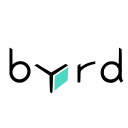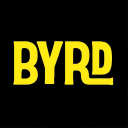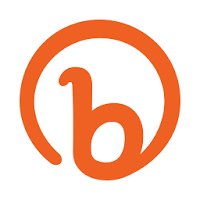
On Building An E-Commerce Fulfillment Startup From Austria
Hello! Who are you and what are you working on?
My name is Alex and I am Co-Founder and CEO of byrd, a startup that is revolutionizing logistics.
We offer a scalable and modern fulfillment solution that gives online shops of every size access to a strong logistics network. This helps businesses to compete with online giants like Amazon & Co and meet the customer expectations of tomorrow.
Today we are proud to say that we are helping more than 120 retailers to turn their logistics into a competitive advantage and shipping from 6 fulfillment centers to the whole world.

What's your backstory and how did you get into entrepreneurship?
After having finished my bachelor degree in Business Administration in Vienna with a focus on Entrepreneurship & Innovation I decided to move to Cambridge in order to pursue a master degree in Land Economy.
Be prepared to face a lot of chaos when starting your business. Sometimes you might be desperate and frustrated but that’s part of it - it is important to focus and always keep calm.
In that time I also had the privilege to be President of the Cambridge University Boat Club, since I was a professional rower at that time. This gave me the opportunity to raise significant funds for a new boat house, represent the club in multiple media events (TV, Radio, Newspaper), and build and manage a team of over 40 athletes.
My career as an athlete that lasted over 10 years allowed me to compete at multiple international events, travel the world, and meet the most interesting people. I
I retired from this career in 2015 after racing in the Oxford-Cambridge Boat Race and the World Championships that year.
Instead of becoming an investment banker I then decided to follow my passion as an Entrepreneur in order to solve a problem I was facing myself. As a power seller on ebay I realized that shipping products is a huge pain point, especially when shipping volume increases.
Take us through your entrepreneurial journey. How did you go from day 1 to today?
It’s been an exciting journey so far.
I started with the vision of making shipping hassle-free for everyone. The initial idea was to offer a pickup service paired with next-level technology:
People who want to ship a parcel can simply take a photo of the respective item and request a pickup. A courier then picks up the item, brings it to the warehouse, where it gets packaged safely and then hands it to the carrier offering the best conditions.
Almost everyone I talked to thought the idea was great, so I started working on this project enthusiastically.
I knew that Christoph, who had been rowing in my team before, has a technical background and possesses the same entrepreneurial spirit as I do. When I reached out to him he immediately introduced me to Sebastian, a colleague of him and true technology-enthusiast - who dropped out of university in order to become co-founder of byrd. Finally, Petra completed the founder team she had been working for other startups like Foodora before.
We had a really good start in Austria to be honest: awesome feedback, a lot of media attention and we were soon invited to the StartUp Show “2 Minutes 2 Million”, which is streamed on Austrian Free-TV, after having won several pitches before.
However, at the same time we realized that although consumers liked the idea and said that our service was solving a problem, they would not use it. You can imagine why, right? How often do you as a consumer ship parcels? Rarely I suppose.
As a consequence, we discontinued our service for private customers in order to focus on the needs and requirements of business customers. This was crucial for our future development since it became clear that an increasing number of retailers asked for a warehousing solution instead of using our pickup service.
The demand for a complete fulfillment solution continuously increased when we expanded our business to Germany. In the end, we abandoned our pick up business in order to develop our own warehousing software.
Now we had a clear vision: Proving a fulfillment solution for online shops that is powerful, painless and scalable. Therefore we had to become a platform and a company that solely focuses on the technology rather than on the logistics processes: now we are connecting more than 120 retailers with numerous fulfillment centers and logistics providers who use our software.
How are you doing today and what does the future look like?
We pool huge amounts of shipments and orders which enables us to pass on attractive prices to our customers and at the same time retaining a certain percentage of the margin in order to cover our costs and generate a profit.
Currently, we have more than 120 customers and work together with 6 fulfillment centers as well as countless carriers in order to ship parcels worldwide at the best conditions.
This requires a lot of operative work and processes in order to ensure smooth coordination between logistics providers and our customers.
In the future, we will expand our network strategically with the goal to increase the proximity to the end-customer who orders the goods online. In the long term we will be in a position to offer a strong international logistics network that works with the help of a high-tech software.
Through starting the business, have you learned anything particularly helpful or advantageous?
One of the hardest aspects for sure is to execute a pivot which requires abandoning the initial business idea. Especially, when you now that you have been putting a lot of work into it and people actually seem to like the idea.
However, that should not influence you and your team since you have to keep in mind what is best for the business in the long run.
Secondly, becoming a platform by building partnerships with logistics providers was a good decision - it’s a win-win situation. We provide the technology and they can focus on what they can do best - logistics. This increases their efficiency significantly.
Moreover, we are experienced in marketing & sales, whereas fulfillment centers are not. That is why they have capacities left they can not fill - we help them in this regard.
A great piece of advice when evaluating an idea to start-up your business is looking at trends. In our case it was e-commerce business which is steadily growing. Without any doubt, this contributes to the growth of the logistics sector.
Last but not least, it is important to be prepared to face a lot of chaos when starting your business. Sometimes you might be desperate and frustrated but that’s part of it - it is important to focus and always keep calm.
What platform/tools do you use for your business?
One of the best tools without any doubt is Zapier. It helps you to automate many processes: from operations to marketing. The slogan “Zapier makes you happier” definitely nails it.
Another tool that is really helpful in the age of digitization is Looker - a data exploration and discovery business intelligence platform. It is extremely beneficial in order to create reports that help you to monitor performance and make the right business decisions.
Last but not least, we are very satisfied with close.io as CRM-tool which helps you to easily manage inbound as well as outbound leads.
What have been the most influential books, podcasts, or other resources?
Thinking, Fast and Slow by Daniel Kahnemann - a great book that explains how we think, how we make decisions and what we have to keep in mind when making them.
Advice for other entrepreneurs who want to get started or are just starting out?
- Always be prepared to adapt your business model
- Hire people that fit your company culture and enforce this culture
- Do not only focus on revenue, but also on profitability
Where can we go to learn more?

Download the report and join our email newsletter packed with business ideas and money-making opportunities, backed by real-life case studies.

Download the report and join our email newsletter packed with business ideas and money-making opportunities, backed by real-life case studies.

Download the report and join our email newsletter packed with business ideas and money-making opportunities, backed by real-life case studies.

Download the report and join our email newsletter packed with business ideas and money-making opportunities, backed by real-life case studies.

Download the report and join our email newsletter packed with business ideas and money-making opportunities, backed by real-life case studies.

Download the report and join our email newsletter packed with business ideas and money-making opportunities, backed by real-life case studies.

Download the report and join our email newsletter packed with business ideas and money-making opportunities, backed by real-life case studies.

Download the report and join our email newsletter packed with business ideas and money-making opportunities, backed by real-life case studies.



































